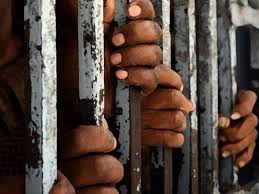 Bangalore, Sep 6: The State Prison Advisory Board has recommended the release of at least 200 prisoners on grounds of good behaviour in the first phase in Karnataka.
Bangalore, Sep 6: The State Prison Advisory Board has recommended the release of at least 200 prisoners on grounds of good behaviour in the first phase in Karnataka.
But the select prisoners may have to wait a while as their release will be subject to clearance from the Supreme Court.
In January this year, the Congress government had decided at a Cabinet meeting to release prisoners on good behaviour after seven years. The prisoners were to be picked from among those who have served a big part of their respective sentence. Prisoners who have served at least 10 years of sentence were to be preferred.
Following the Cabinet decision, the government issued a notification to set up Prison Advisory Boards for all the eight central prisons in the State. The PABs then submitted a list of prisoners for release to its State body.
But the Supreme Court order staying the premature release of those convicted in the Rajiv Gandhi assassination case put a spoke in the State’s plans. On July 7, 2014, the apex court had directed all states not to prematurely release life convicts.
The SC verdict was an interim order on the Centre’s petition against the decision of the Tamil Nadu government to release the seven convicts in the Rajiv Gandhi assassination case. The court had also issued notices to all states seeking their response on whether the Union government’s assent was required to release those held guilty by the Central Bureau of Investigation (CBI) courts.
In response, official sources said, Karnataka filed an affidavit, seeking the Supreme Court’s permission for the release of prisoners lodged in the State’s jails.
Praveen Sood, Principal Secretary (PCAS), Home, said that the government was ready to release the prisoners if the Supreme Court gave its approval. “We are ready to take the list of prisoners to the Cabinet for its approval. But the SC stay on the release of TN?life convicts has a bearing on our decision. If the court approves, we can move ahead,” he said.
In January this year, the Cabinet had approved the guidelines for premature release of prisoners. Accordingly, prisoners who have been convicted in 22 types of criminals are ineligible. A life convict should serve at least 14 years in jail, including the remission period, to be eligible for premature release. More than 1,000 prisoners are estimated to be eligible for early freedom under the said guidelines in Karnataka.





Comments
Add new comment